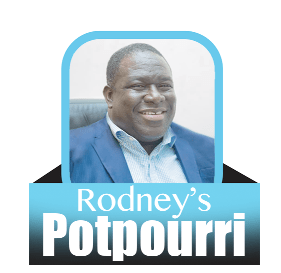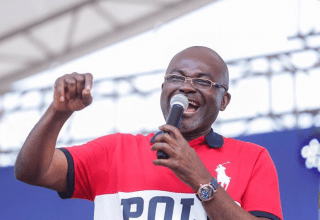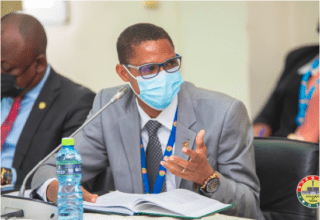
Prior to my first ever trip outside Ghana in October 1989 as a Legon undergraduate, my skin colour had never been an issue for me, and I believe that applies to every Ghanaian who has never travelled abroad.
Growing up in the mining towns of Tarkwa and Prestea, I socialised and sat in class with children of Caucasian expatriate staff from all parts of the world, but this experience did not quite accentuate my blackness — after all, they were in the minority, and if anyone had to have an acute sense of self, it was they, not me and my fellow Ghanaians.
I suppose that is what one might call ‘privilege’ — not having to be worried about being in a minority and, therefore, being removed from its realities.
Growing awareness
As I grew up, I read so much about slavery, colonialism, emancipation, Pan Africanism and racism in other parts of the world, notably the USA, that many black people had experienced, and so I was aware of skin colour as an issue.
Through the writings of Marcus Garvey, Senghor, Du Bois, Alexandre Dumas and many others, the plight of the black man in Europe and North America was brought forcefully to bear, while African writers such as Ngugi wa Thiong’o, Peter Abrahams and Steve Biko told the story of the indignities and sufferings of the African at the hands of the Europeans in their own homeland on this continent.
However, all of this did not hit home in the true sense of my personal space until I travelled to the United Kingdom (UK) more regularly and for longer periods and subsequently became starkly aware of my blackness.
Suddenly, I became conscious of being one of only a few black people at a suburban train station, upmarket supermarket or restaurant or in a lecture theatre.
I took note if I was appearing before an all-white job interview panel, or if the seat next to me on a bus or train remained empty, with a number of Caucasians preferring to stand instead.
Seeking refuge in blackness
Gradually, as the sense of self took root, I began to take notice of and seek refuge in, the parallel, an almost exclusively black society that ran alongside mainstream British society.
I read black-owned newspapers and magazines, visited black-owned nightclubs, bought from black-owned shops and generally immersed myself in black culture, both at the intellectual and not-so intellectual level.
Particularly, Ghanaian highlife music now made sense to me, and after a week of salads, burgers and pastas at work, jollof rice or kenkey on weekends from the Ghanaian supermarkets were a godsend.
I also noticed that many Caribbean blacks were rankled by the fact that they lacked deep specific roots to Africa because of slavery, and thus felt a lingering distaste and perhaps even anger towards the predominantly white society they now lived in, which systematically kept them down in many ways, from disproportionate incarceration to disproportionate exclusion and more especially for young males.
For many Africans like myself who had come to the UK as adults and with no such ‘baggage’, so to speak, the narrative was somewhat different in many ways.
Black History Month
Through Black History Month, celebrated in February in the USA and in October in the UK every year, I began to read about many illustrious black personalties on both sides of the Atlantic, including engineers, inventors, doctors and lawyers, who had helped shape the black race in many positive ways in these two countries, but whose stories were not told loudly enough.
According to www.history.com, ‘Black History Month is an annual celebration of achievements by African Americans and a time for recognising their central role in U.S. history.
Also known as African American History Month, the event grew out of “Negro History Week,” the brainchild of noted historian Carter G. Woodson and other prominent African Americans.
Since 1976, every U.S. president has officially designated the month of February as Black History Month.
Other countries around the world, including Canada and the UK, also devote a month to celebrating Black history.
The narrative continues:
‘The story of Black History Month begins in 1915, half a century after the Thirteenth Amendment abolished slavery in the United States.
That September, the Harvard-trained historian Carter G. Woodson and the prominent minister Jesse E. Moorland founded the Association for the Study of Negro Life and History (ASNLH), an organisation dedicated to researching and promoting achievements by Black Americans and other peoples of African descent.’
While Black History Month was particularly good for many young black people who had been born and bred in the UK and who desperately needed such role models to help them aspire in a white dominated society which expected little of black people, it did not quite work for me to the same extent because I had grown up in Ghana, with every public role model and high achiever being the same skin colour as I was, and I did not intend to live there forever.
Going forward
Sadly, the rest of the world sees Africa as literally a footnote in its affairs, and with a negative image as perennial beggars and purveyors of strife and disease to boot.
Sadly, many Africans fall for this and throw their hands in despair too.
I think it is important to drive a change of this narrative through curriculum reform in the teaching of African history in schools across the continent, alongside many other initiatives to lift this continent, in a manner similar to what Black History Month in Europe and North America seeks to do. We must tell with pride the story of the Great Zimbabwe, of the magnificent ancient seat of learning that Timbuktu once was, of the Blood River Heritage Site in South Africa, among others, and of the many gallant heroes of our continent, from Shaka Zulu and Mansa Musa to Nkrumah and many others.
We must dismantle the narrative that David Livingstone discovered the Victoria Falls, among many other similar absurdities.
African history is rich and glorious and we must continue to inspire our people because the mind is an important asset.
We cannot afford to tell our story through the prism of colonial adventurers and wide-eyed imperialists who saw their mission in Africa, among others, as ‘civilising the natives’.
Only we can tell our story best.

Dr Carter G. Woodson (1875-1950) dedicated his life to educating African Americans about the achievements and contributions of their ancestors. Credit: History
Rodney Nkrumah-Boateng,
E-mail: rodboat@yahoo.com
Source: graphic.com.gh

















